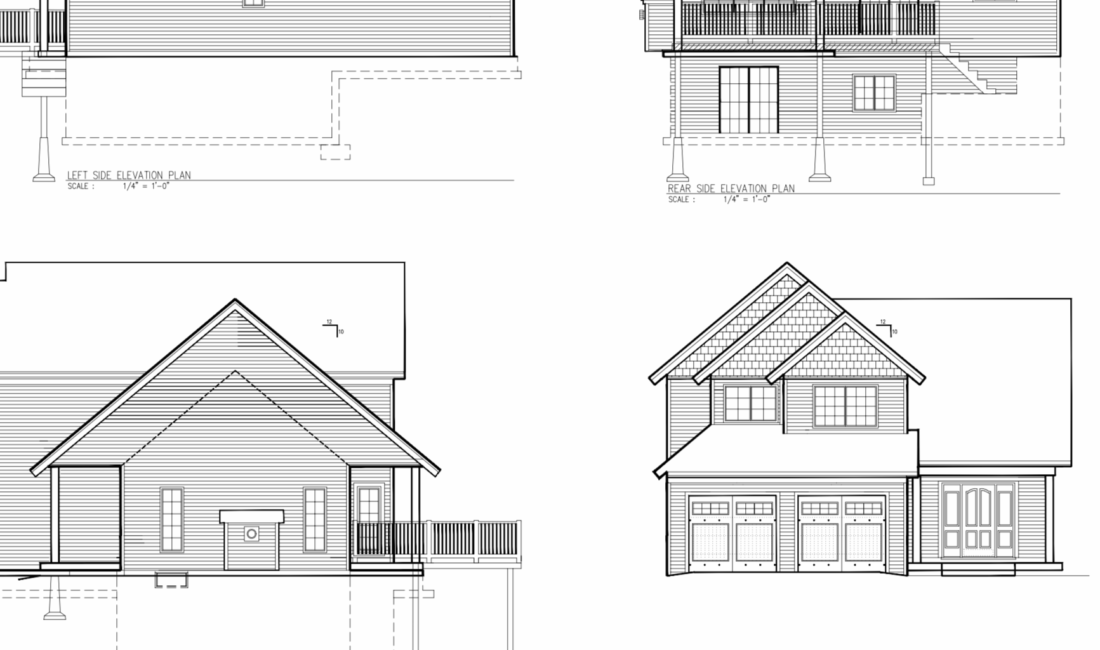Everything to consider when
deciding to get a new-build house
Long post alert! Buckle up, this is going to be a real scroller, but I want to be really thorough and explore all of the things that we considered when deciding to (and figuring out we even could,) build a new house. If you’re wondering whether it might be possible to build your own home, read on to learn some of the many things to take into account before you take the leap.
background
When David started shopping for new houses, I was actually less than excited. I loved our first house. It was close to work, close to our families and we had made it so cute. See how we transformed it here. I didn’t want either of us to have to do all that work again, so I told him whatever our next house was, it would have to be perfect.
We were primarily looking at new construction homes and houses built in the past few years. There are obvious advantages to that – we’d be less likely to have any issues that would need to be fixed, if we got in early enough we may be able to do some customization, etc. But, every one we looked at online just wasn’t quite right. It was too far from work, it wasn’t in a town with a good school district, or (most frequently) it was just too big and expensive for us.
After thinking to myself for the hundredth time, “well, I wouldn’t have chosen those floors but they’re brand new so it would be a shame to replace them…” I asked David, “Can we just, like, build our own home?” He was skeptical. Neither of us knew what the process would entail and (like most people, I think) thought it would just not be in our price range.
the basics
With a lot of time on my hands thanks to it being early on in the pandemic lockdown, I just started doing some research. I googled a lot of very vague phrases like “how to build a house.” But, it turns out there are really a lot of ways to go about building a home. Here’s what we ended up doing, and how we narrowed down all those options to find the perfect solution for us.
We figured out a few towns in our state that we were interested in living in, because of distance to work and family, and the quality of the school district. We don’t have kids yet but if we were going to build a house, it was going to be a long term stay…
I started calling builders in those towns that I found on google. I stayed really humble and honest when I called around and basically explained that my husband and I were looking to build a home, but we wanted to know more about the process and costs.
builders vs. developers
Some of these builders were strictly construction builders and some were developers. The main difference here turned out to be that construction companies will really only handle the actual building of the house. That means you need to find and purchase land (as well as all the permits and additional costs that may come along with that.) A developer usually has a neighborhood (or a few neighborhoods) that they are building all at once. They typically have a few house plans you can choose from as well as lots in the new development that you can pick from. They have already managed all of the land acquisition and permits, etc.
buying land & using a builder
There are pros and cons to both of these. If you find your own land and have a builder construct a house for you on it, you are more likely to be able to make everything perfectly custom, as well as probably getting more (and more private) land, rather than going to a whole new neighborhood. However, this turned out to be a significantly more expensive option, at least for us. We weren’t able to find land that would leave us enough in our budget to afford everything involved in a new construction home. We found a great builder that helped me explore this as an option and gave me an estimate without having to commit to anything with him. The other downside for this option is that it requires a lot more involvement on the buyer’s end. You would need to figure out all the legal implications, land clearing/management, and anything else involved with making previously undeveloped land into a home.
using a developer
The other option (and what we ended up doing,) is to find a new development with a trusted developer and get in as they are building this new neighborhood. I’ll start with the cons since, for us, there were a lot more pros. With a new development, you typically have less opportunity to customize your future home. The developer will have standard features and finishes that will be included in the end price of your home, and these are what you have to pick from. You are usually able to upgrade things for a price, but you’re not as likely to be able to any kind of really custom features. We also found that many new developments tended to clear cut the land for their new neighborhood. For us, this was a real con because it made the neighborhoods feel so bare and un-homey. It is cheaper for companies to clear cut an entire area of trees than it is for them to go in and cut down smaller areas, leaving trees between houses and in future yards. We ended up finding a development that actually had a lot of trees still and it made the lots feel a lot more private, so I would definitely recommend just driving through a potential new neighborhood you may be looking to buy into.
You really just have to do your research, no matter what the route you are going to end up with. You want to make sure you find a builder that is willing to help you explore your options and is candid with you about everything that will include (or not include) in your new build.
As I said, we ended up going with a developer in Danville, New Hampshire called Lewis Builders.When I called and spoke to their sales manager, she was really helpful and open, and helped walk me through what the process would really look like if we were to go with them. An important note is that all of the listings for the future houses in this neighborhood were much too big and wayout of our price range. I decided to still call Lewis Builders to see if they had any unlisted smaller options that might fit better in our range. Their response (and the response of many builders that I called,) was “do you have plans already?” See this post to read about the process of finding a house plan. Lewis Builders was willing to work with other house plans outside their current menu of options. This allowed us to find something that would work within our budget but would go into a lot in their new development.
the initial process
After finding a few plan options, we went to see the future neighborhood and meet with the sales manager to talk more about the process. We really just fell in love with the location and the neighborhood. There were lots of trees between the lots, making them feel more private and established, and the neighborhood was bordered by town forestland with trails that we would be able to walk with our dogs! We liked the look of some of the other houses in the neighborhood and could really picture it being our future home. When you don’t have an actual house to tour, this is what makes you be able to picture living in a place!
timeline
While we were still exploring both builder options, the next thing we had to think about once we found a couple solid builder options, was the timeline. We asked both what the time from start to finish would be like. This will of course depend on the current workload of your builder and how far along the development might be. It ended up that both said they would take about 4-5 months from start to finish for the plans we picked. Another important note is that this was not from the time we put in our deposit, but rather from the time they poured the foundation. We ended up spending close to 6 weeks finding plans, figuring out what lot we wanted, making some changes to the plans, and picking out some of our finishes. This will definitely vary though depending on your builder and situation.
selling your current home
Another huge thing to consider if you currently live in a house that you own, will be when to sell your current house. For us, we decided to sell our house immediately, rather than waiting for our new house to be complete. It was a real sellers’ market and we wanted to make sure that we would make enough of our house to even be able to build the new house. Everyone’s situation will be different here, but since we don’t have kids and the timing would work out, we decided to sell right away and move in with David’s parents while we wait for our new house to be built. While we probably could have waited to sell, it made the most sense financially for us to sell right away, cash in on our equity, and then save extra by not making any mortgage payments by living with family for a few months. It felt the most secure, and while it is an adjustment to move in with family, it’ll be well worth it when we move into our new house.
deposits and payments
While we’re talking about money – aside from the deposit that we put down to reserve our lot, we won’t make any actual mortgage payments on our house until it is complete. That’s when we’ll actually close on it and move in, the same way you would if you were buying any house. This means we don’t technically own the house/land until it is done, but it allows us to save even more money to put down for our home loan. This is another difference from buying our own land and having a builder construct a home on something we already owned.
conclusion
There’s a lot to think about, and this was just the beginning of our journey of building our house, but it’s how we discovered that it was a feasible option for us. To find out more about the actual process of the build once we committed to a builder and a lot, click through to this post!
Did you find any of this information helpful? Are you going to looking into building your own home? I’d love to hear from you! If you have any more questions about what to consider when deciding to build a home, please get in touch with me here!


Leave a Reply